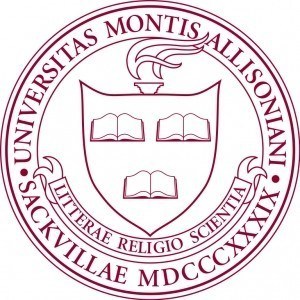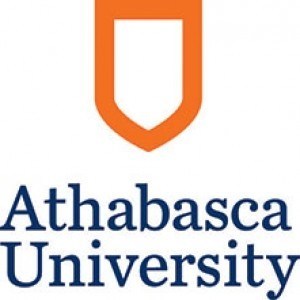Photos of university / #mountallison
Public Policy at Mount Allison University is a dynamic interdisciplinary program designed to equip students with the knowledge and skills necessary to analyze, develop, and evaluate policies that impact societies at local, national, and international levels. The program emphasizes critical thinking, ethical considerations, and empirical research methods, preparing graduates for careers in government, non-profit organizations, advocacy groups, and the private sector. Students engage with a broad range of subjects, including political science, economics, sociology, and environmental studies, to gain a comprehensive understanding of the policymaking process and its societal implications. The curriculum combines theoretical frameworks with practical applications, encouraging students to participate in case studies, policy simulations, and research projects. Mount Allison's small class sizes foster an interactive learning environment, allowing for personalized attention and mentorship from faculty members who are experts in their fields. Throughout the program, students develop essential skills in data analysis, policy writing, public speaking, and stakeholder engagement, ensuring they are well-prepared for diverse professional roles. Additionally, the program offers opportunities for internships and community engagement, providing real-world experience and networking opportunities within the public policy sector. Graduates of the program are equipped to contribute meaningfully to policy development and reform efforts, uphold ethical standards in their work, and pursue advanced studies in related fields. Public Policy at Mount Allison University reflects a commitment to fostering informed, responsible, and innovative leaders capable of addressing complex societal challenges through effective policy solutions.
Public Policy at Mount Allison University offers students a comprehensive and interdisciplinary exploration of the fundamental issues shaping Canadian society and governance. This program is designed to develop critical thinking, analytical skills, and a deep understanding of policy-making processes at the federal, provincial, and municipal levels. Through a combination of coursework, research projects, and practical experiences, students engage with topics such as economic policy, social justice, environmental sustainability, public administration, and international relations. The curriculum emphasizes the importance of evidence-based decision-making and ethical considerations in policy development. Students will examine case studies of recent policy initiatives and analyze their impacts on communities and various stakeholder groups. The program also encourages engagement with local government and organizations through internships, workshops, and seminars, providing real-world experience and professional networking opportunities. Faculty members, who are experts in areas including political science, economics, sociology, and history, guide students in developing a nuanced understanding of the complexities of policy issues. The Public Policy program prepares graduates for careers in government, non-profit organizations, research institutes, and the private sector. It also provides a solid foundation for those interested in pursuing graduate studies or further specialization in related fields. Throughout the program, students are encouraged to think critically about the role of government and public institutions in fostering social equity, economic growth, and environmental resilience. By integrating theory with practical application, the Public Policy program at Mount Allison University equips students with the skills necessary to become informed, ethical, and effective policy-makers and leaders in Canada and beyond.
Program requirements for the Public Policy major at Mount Allison University typically include a combination of core courses, electives, and research components designed to provide students with a comprehensive understanding of policy analysis, development, and implementation. Students are expected to complete foundational courses in political science, economics, and sociology to build a multidisciplinary understanding of public policy issues. These core courses often cover topics such as Canadian government and politics, international relations, economic principles, and social policy.
In addition to the core courses, students are encouraged to select electives that align with their specific interests within public policy, including environmental policy, health policy, or public administration. Internship opportunities or co-op placements may be integrated into the program, allowing students to gain practical experience in governmental or non-governmental organizations. A capstone project or thesis is typically required, providing students with the opportunity to conduct in-depth research on a relevant policy issue.
Students must also meet certain academic standards to declare and maintain their major, including a minimum GPA in major-related courses. The program emphasizes critical thinking, analytical skills, and effective communication, preparing graduates for careers in government, advocacy, research organizations, or further graduate study. Specific course titles, credit requirements, and details are available through Mount Allison University’s academic catalog, but the overall program aims to balance theoretical knowledge with applied skills to foster informed and effective policymakers.
The financing options for the Public Policy program at Mount Allison University are designed to support students through various forms of financial aid, scholarships, and employment opportunities. Undergraduate students typically explore a combination of government bursaries, scholarships provided by the university, and external funding sources to finance their studies. Mount Allison University offers a range of merit-based and need-based scholarships that are accessible to students enrolled in the Public Policy program. These scholarships are awarded based on academic achievement, leadership qualities, and community involvement.
Additionally, students have the opportunity to apply for government student loans and grants, which can cover part or all of their tuition fees and living expenses. The university's financial aid office provides resources and guidance to help students navigate these options efficiently. Work-study programs are also available, allowing students to earn income while gaining relevant experience in policy-related roles on campus or within the local community.
Many students consider part-time employment during their studies to supplement their income, and Mount Allison University maintains partnerships with local organizations to facilitate such employment opportunities. Furthermore, students are encouraged to seek external scholarships from governmental bodies, private foundations, and industry sponsors interested in supporting future public policy professionals.
International students have access to similar financial aid options, although they may have additional eligibility requirements. The university also provides information about payment plans and fee deferral options to help manage the cost of education.
Overall, the university's comprehensive approach aims to make public policy education accessible to a diverse range of students by providing various financial support mechanisms. Prospective students are encouraged to consult the university’s financial aid office and website regularly to stay informed about new funding opportunities, application deadlines, and specific eligibility criteria related to financing their studies in public policy at Mount Allison University.
The Canadian Public Policy program at Mount Allison University offers students a comprehensive understanding of the key issues, structures, and processes that define public policy in Canada. This program is designed to equip students with critical analytical skills, an understanding of governmental and institutional frameworks, and the ability to evaluate policy options effectively. It emphasizes an interdisciplinary approach, combining insights from political science, economics, sociology, and history to provide a well-rounded perspective on policy development and implementation.
Students in this program engage with core topics such as federalism, democracy and governance, economic policy, social policy, environmental policy, and international relations. Through coursework, seminars, and research projects, students learn to analyze policy problems, develop evidence-based strategies, and communicate their findings effectively. The curriculum often includes experiential learning components, such as internships, community engagement projects, and policy simulations, allowing students to apply their knowledge in real-world contexts.
Mount Allison University’s location in New Brunswick offers a unique vantage point for studying Canadian public policy, with opportunities to explore regional issues alongside national concerns. Faculty members are experienced scholars and practitioners who bring a practical perspective to academic content, fostering skills in policy analysis, advocacy, and negotiation. The program also encourages students to think critically about current policy debates and ethical considerations, fostering a nuanced understanding of the complexities involved in policymaking.
Graduates of the Canadian Public Policy program are prepared for careers in government, non-governmental organizations, think tanks, research institutions, and private sector entities involved in policy advisory roles. They also gain a solid foundation for further graduate study in public administration, political science, or related fields. Overall, the program aims to develop informed, engaged citizens capable of contributing thoughtfully to Canada's policymaking process and addressing contemporary challenges with innovative solutions.

